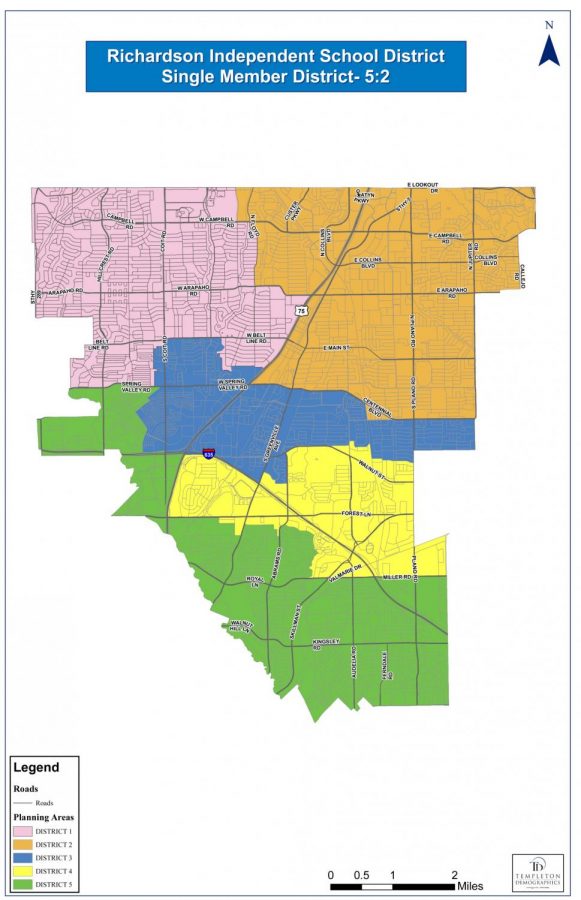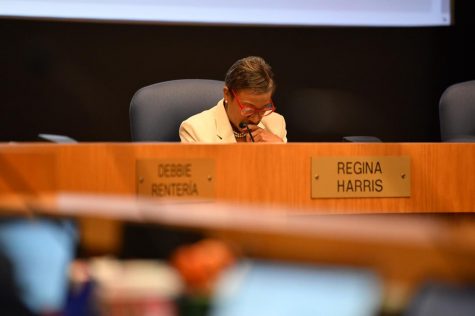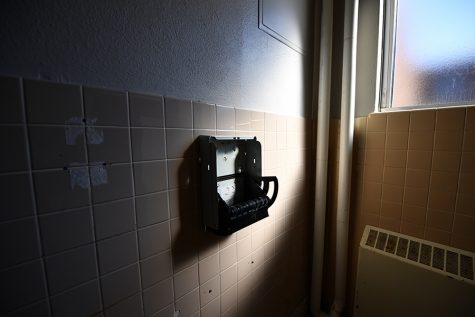RISD Board Settles Lawsuit, Changes How Board Members are Elected
After a lawsuit was filed by former board member David Tyson to change the district’s at-large voting system, RISD board members voted unanimously on Feb. 5 to settle and move to a single-member district system.
After a lawsuit was filed by former board member David Tyson to change the district’s at-large voting system, RISD board members voted unanimously on Feb. 5 to settle and move to a single-member district system for school board elections.
The agreement provides for a new electoral system consisting of five single-member districts and two at-large districts. Two of the five single-member districts were drawn with a majority of minority voters giving those populations better representation.
Courts have held in the past that the at-large system of voting, like the one used in RISD, is in violation of the Voting Rights Act of 1965 because it marginalizes minority communities. The Voting Rights Act applies to redistricting to prevent states and localities from forming district lines that deny minorities a chance to elect a candidate of their choice.
“As a result of the at-large voting system, people of color don’t have the opportunity to run a race and actually get elected,” Tyson, the first black man voted onto the board of trustees in 2004, said.
He was voted out in 2010, then eight years later filed the lawsuit in 2018 against the district.
“I am pleased with the changes, and I hope they are enforced correctly,” Tyson said.
School Board President Justin Bono believes that the settlement is moving the district in the right direction and said that everyone on the board agreed that they needed more inclusion.
“We all wanted diversity,” Bono said. “We simply had different ways of wanting to attain that diversity. The goal of the change is to allow for more candidates to apply for the board. Hopefully the changes lead to more diverse candidates being elected to serve on the board.”
Senior Ayman Hassen said communities don’t normally see the impact of an electoral college until we examine it at a local level. He believes the decision to change the voting system will be a better step moving forward for the district.
“What this basically is is an electoral college on a local level,” Hassen said. “I believe that this is forcing the district to look at our diversity and accept it.”
As the principal of a school with a minority population of nearly 74 percent, Chris Choat said he feels it is important for the diversity in our schools to match the diversity in the district. He said he knows many members on the current board personally and believes they all have good hearts.
“I think that when this new system goes into place, whoever runs for the board must still have that same heart for kids, and willingness to serve their community,” Choat said.
The district has tentatively planned an election under the new system for November 2019, but that must be approved by a judge. If not approved, the new system will officially go into effect in May of 2020.
“I hope for a future RISD that is more diverse and inclusive in the types of people who are hired to represent the district,” Tyson said. Hopefully, this will open doors for more people to run for the board and serve their communities.”



![Katherine Dodgen teaches during first period Algebra 2. She [Elaine Dodgen] was always really supportive of everything that I wanted to do, Dodgen said. Even when there were people who doubted me, she always believed in me. Photo credit: Shea Southern](https://thetalononline.com/wp-content/uploads/2023/10/Dodgen-foundation-600x400.png)




![The Halloween project came back for its second year while students were asked to design a functioning, spooky-themed machine that could run purely mechanically. They [the projects in this class] are fun, and interactive, and then informative, said Abubakar Bakatunde, a tenth grader in the class.](https://thetalononline.com/wp-content/uploads/2023/01/robotics-475x317.png)





